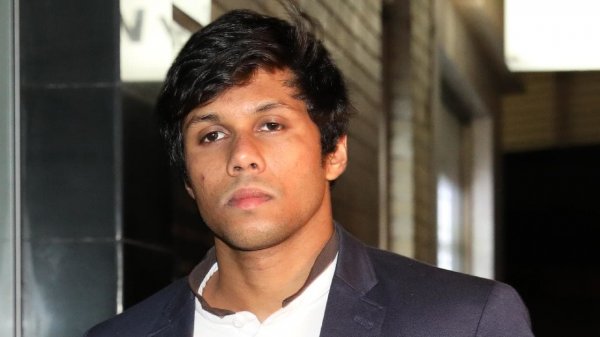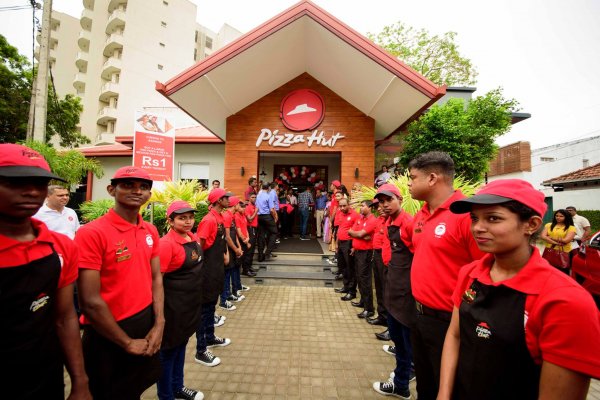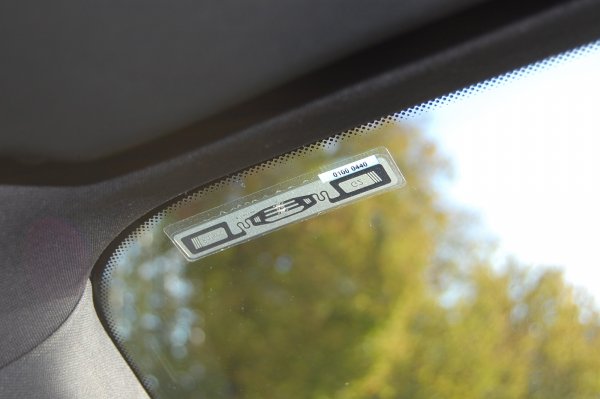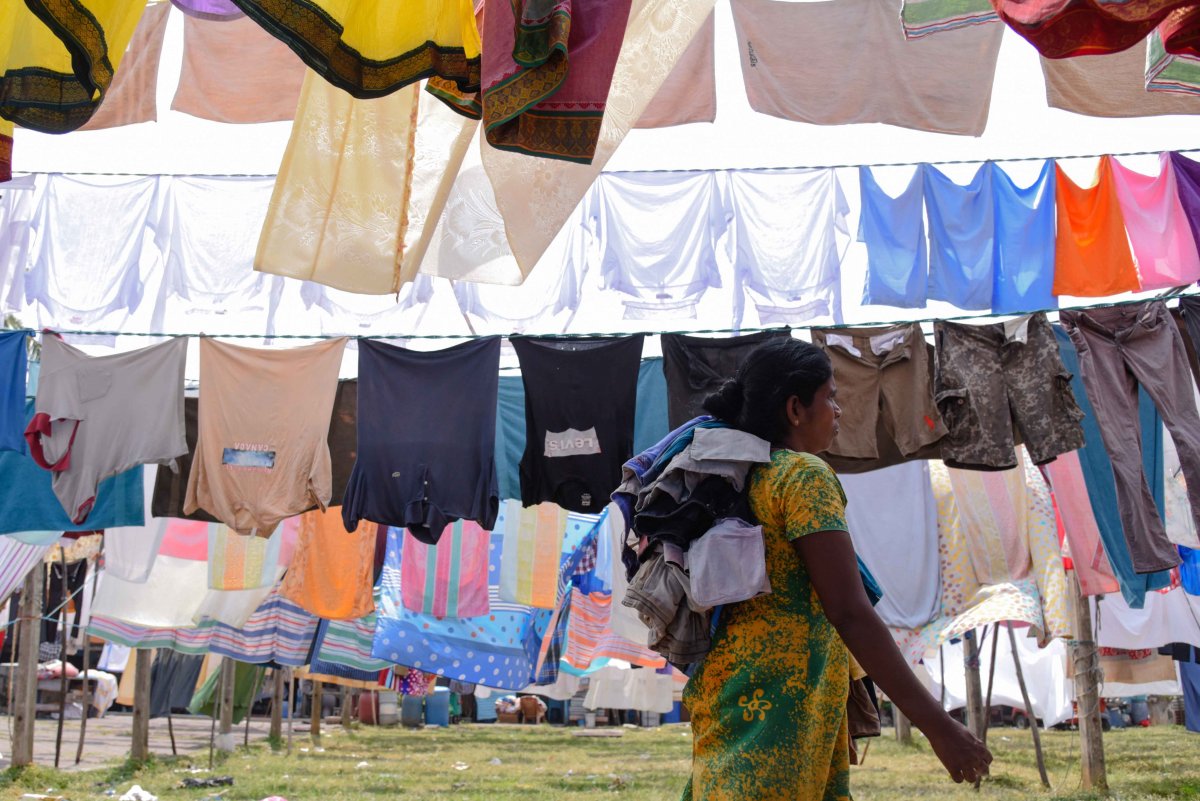
Two things stood out to me in the locale known as ‘Paradise Place’. The first is the massive kovil, tucked away in what could easily be mistaken for a part of Jaffna but is in fact in the middle of Kotahena and Panchikawatte. The second is the hundreds of clothing lines pulled across a field, with scores of colourful garments of varying kinds and styles, hanging, drying, and wafting in the breeze.
The peal of the temple’s bell reverberates through the mild morning light. There is a subtle floral fragrance in the air: the scent of detergent and washing powder, mingling with the aroma of jasmines offered at the kovil, early that morning. This is what a typical Monday looks and smells like here. The dhobis of Paradise Place are already out and about with their loads; some are putting freshly washed clothes out to dry, while others are just returning after having collected a fresh load.
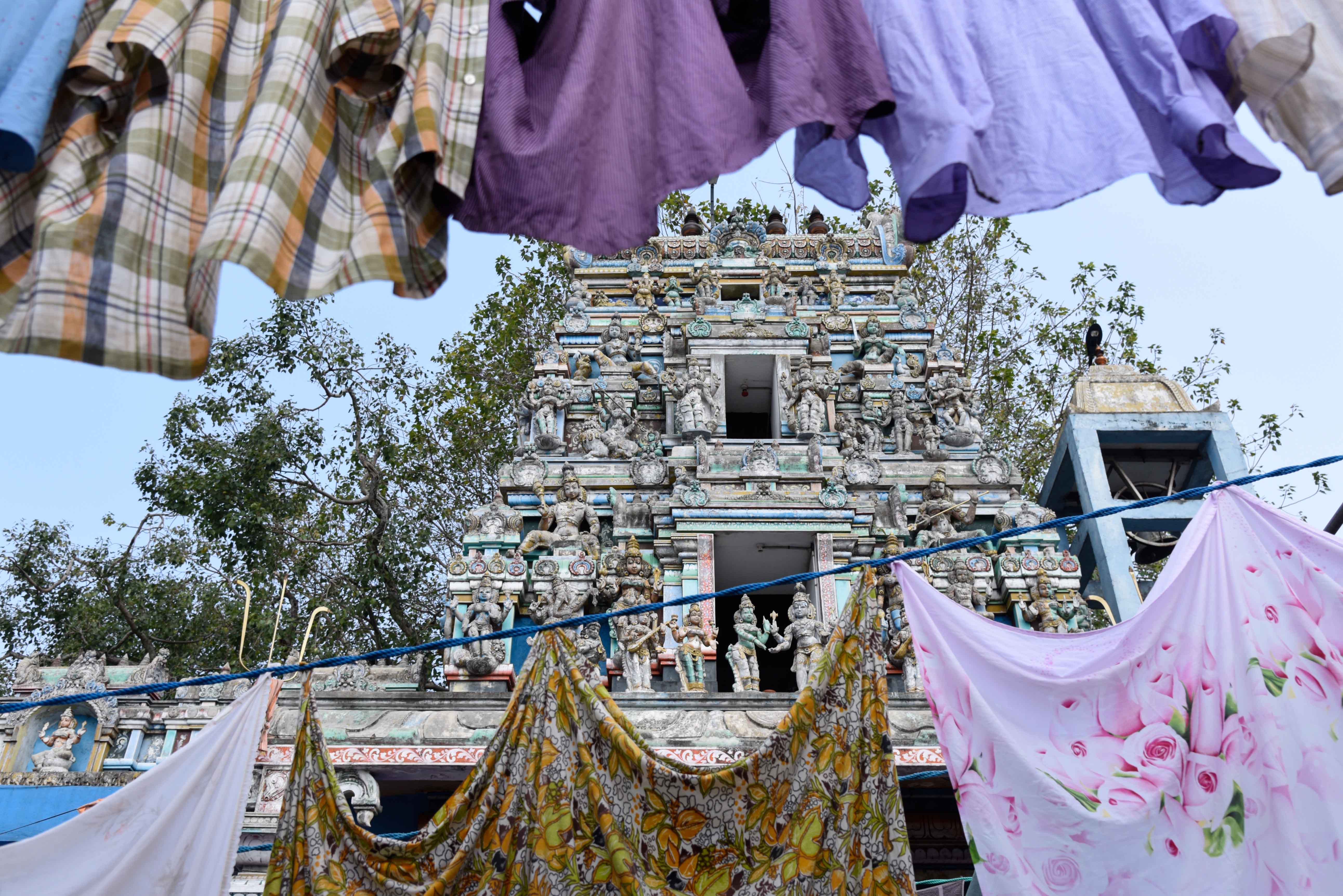
The origins of the dhobi community can be dated back to the 1920s. A caste-based industry, the dhobis were primarily a Tamil ethnic class that belonged to the group known as the “panchamars”. The word dhobi derives from the Hindi term dhona, which translates to “to wash”.
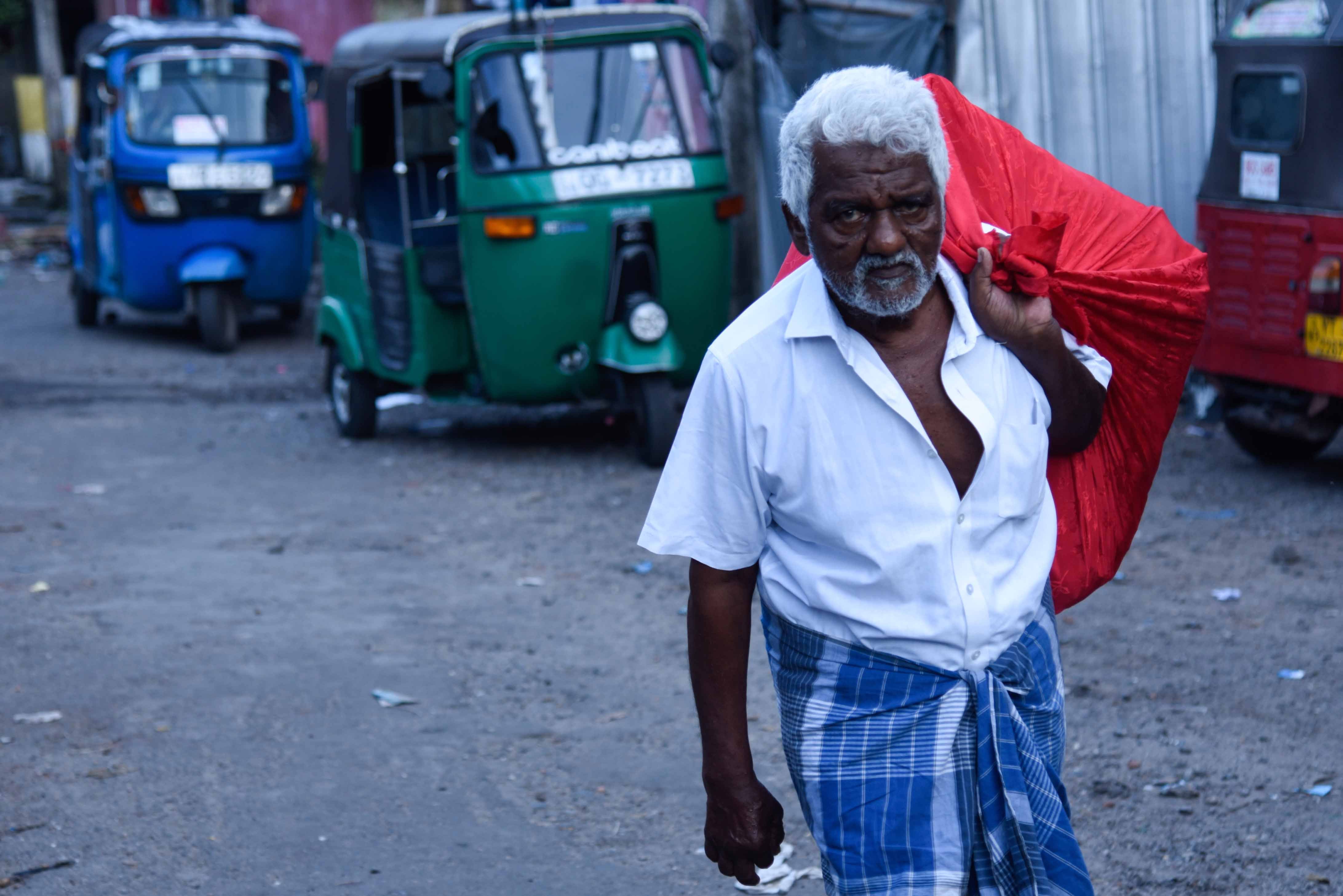
Records suggest that in 1928, the dhobi community residing around the Beira Lake area in Colombo staged a protest demanding cleaner premises to do their washing. At that time, their primary clientele came from the warships and the merchant vessels that entered the Port of Colombo. Although the main cargo would have consisted of various wares, materials and merchandise from all over the world, the vessels also brought with them immense quantities of dirty linen that needed washing, as laundry facilities were not available onboard.
Following the protest, instructions arrived from the British administration at the time to construct better laundry facilities in the area. Gradually, this area would come to be called ‘Laundrywatte’ by the locals.
With time, however, the areas surrounding Laundrywatte became gentrified. Concurrent governments that came into power moved these communities to various other locations, resulting in the subsequent disappearance of the dhobi community. Paradise Place, at present, is the only area with generational ties to the colonial dhobi community.
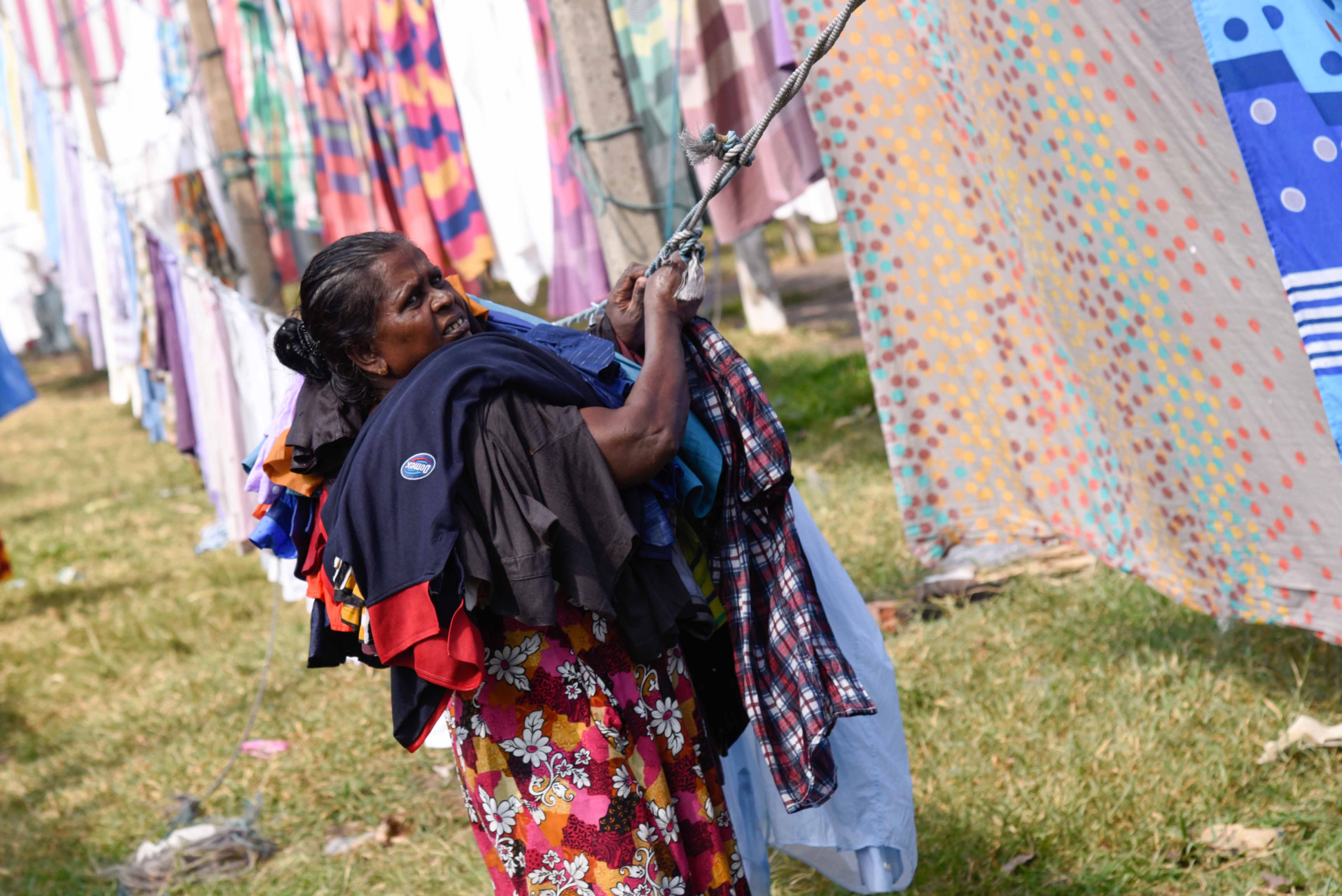
When we visited recently, Balamani (68) and her son, Pragas (37), explained that the history of Paradise Place runs back to 1931, when the British administration introduced the dhobi and laundry services. Balamani married into the area, she says. Her late husband was a dhobi. “I married when Sirimavo [Bandaranaike] was in power,” she said, unable to recall the actual date. Now, her son continues in the business.
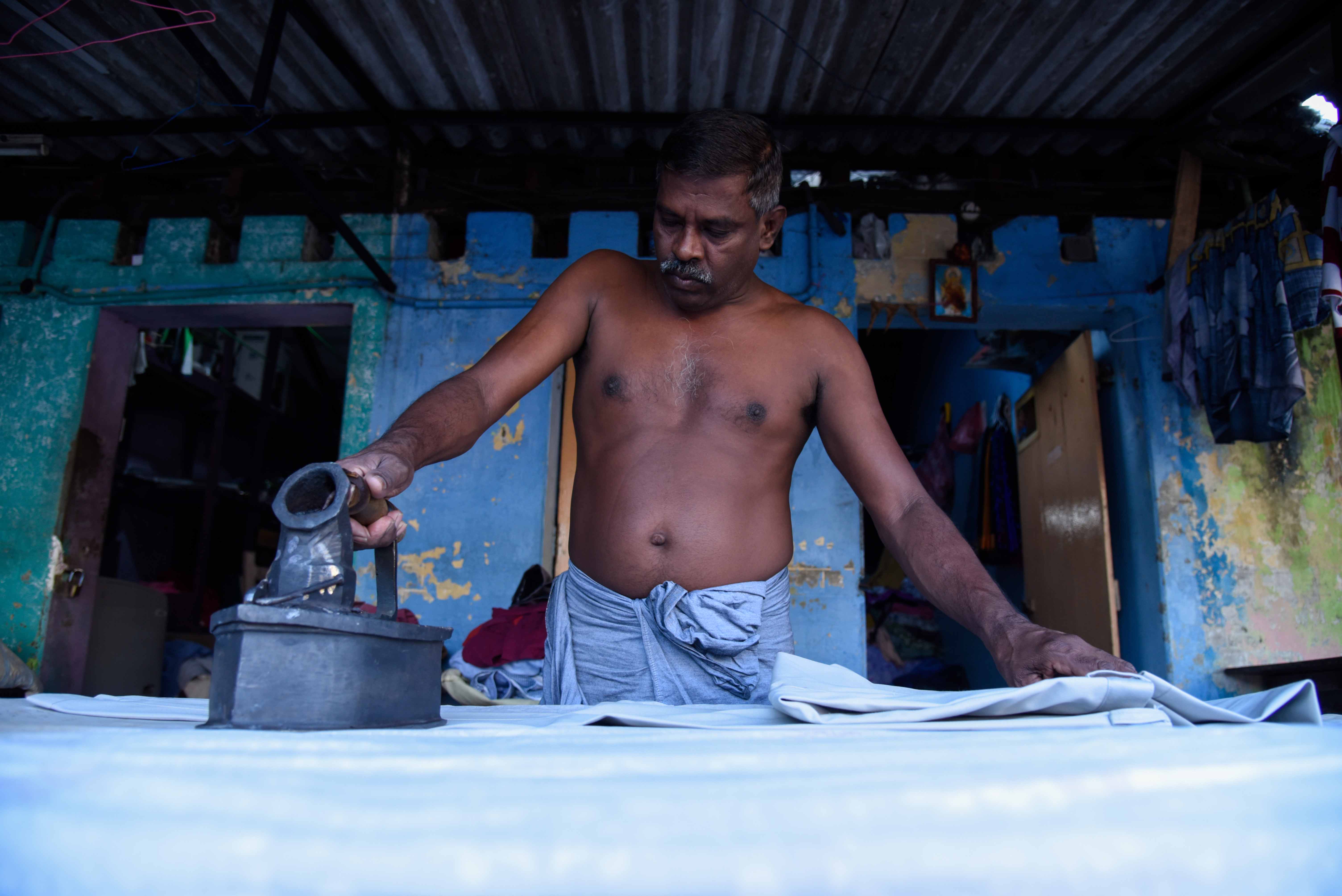
Washerman Kanagasabhey (54) collects loads of clothes from houses in Bambalapitiya and Wellawatte. “That’s how our week starts,” he said. “During weekends, we go and collect clothes from homes and return the previous week’s load, washed, ironed, and packed nicely.”
When we met him, he was sprinkling water onto clothes that had been washed and dried the previous day. “It makes it easier to iron with this,” he explained. Pointing to the charcoal iron next to him, smoking profusely from the fresh batch of coal he had put in, he said, “You cannot do it without sprinkling water.”
Despite the present-day availability of electric and steam irons, these washermen and women insist on the superiority of the charcoal-fed iron. Using these irons is quite a process; the coconut-shell coals have to be heated within the hollow middle of the iron box made out of brass, to a specific degree. Often, it is lit and left to burn, and just as the fire dies and the embers begin to glow red, the top is shut with a lid and the ironing begins. Antiquated and extremely heavy, using one of these irons is a herculean task.
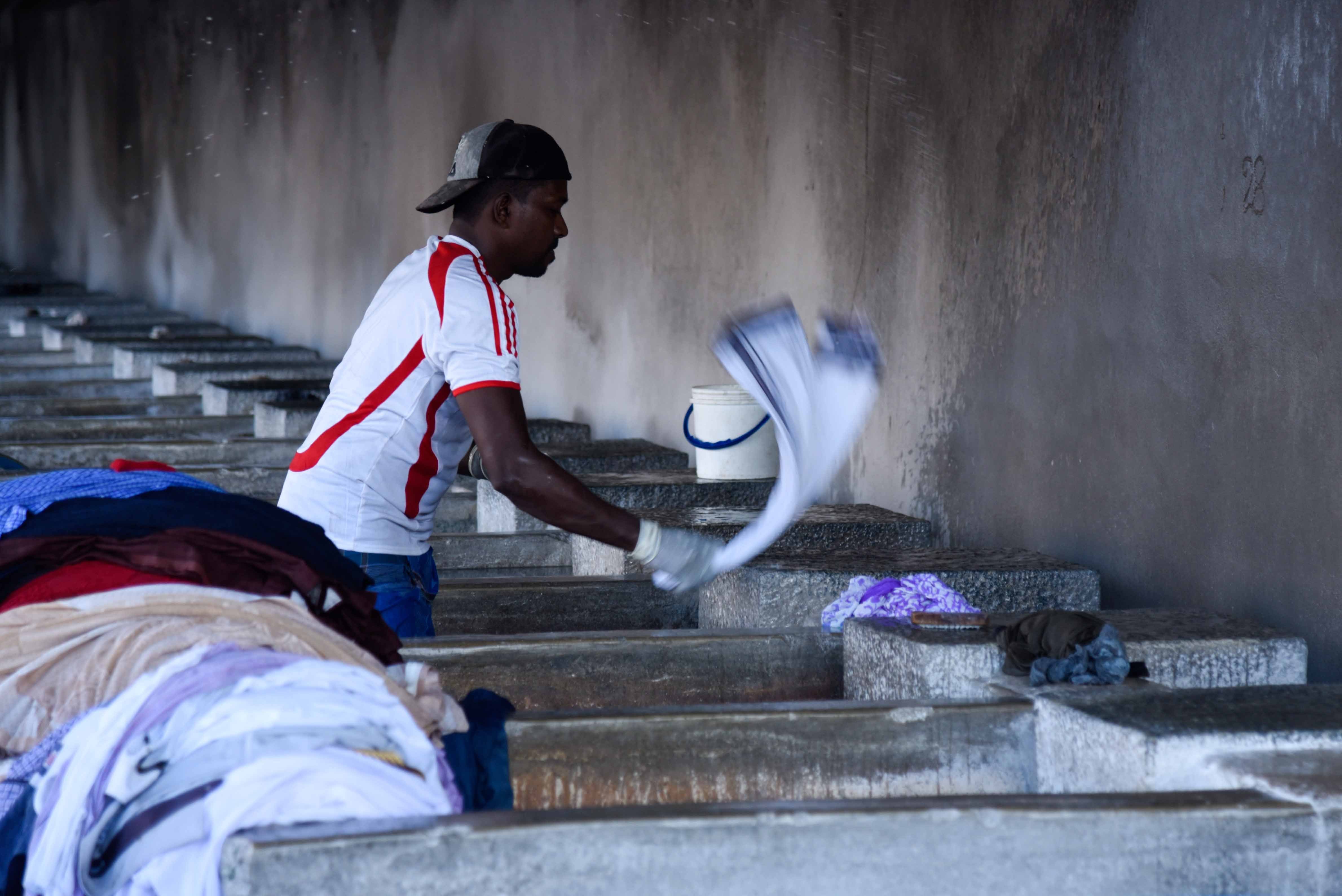
There are approximately 1,500 people living in and around the area of Paradise Place, most of whom are dependent on the laundry services they provide. Each family has an assigned tank, a washing station, a common drying area, an ironing room, and living quarters. The facilities are managed by the Colombo Municipal Council, to which the families pay Rs 11.25 in monthly rent.
Murali (33) is Kanagasabhey’s third son. He is a third-generation dhobi, taking after his father. All four of Kanagasabhey’s sons are dhobis, while his only daughter is married to another dhobi. It was Murali’s uncle who taught him the trade when he was 17. His siblings, although now married and moved out of their ancestral home, remain in the same trade. Murali has two children who are schooling. “I dropped out of school when I was 17 because I wanted to work and earn some money,” he said.
Murali was reluctant to be photographed. When asked if there was a particular reason, he said, almost as an afterthought: “My children know what I do for a living. But their friends and schools don’t know. I don’t want them to know, because it would not be good for my children.” We promised not to use his photo.
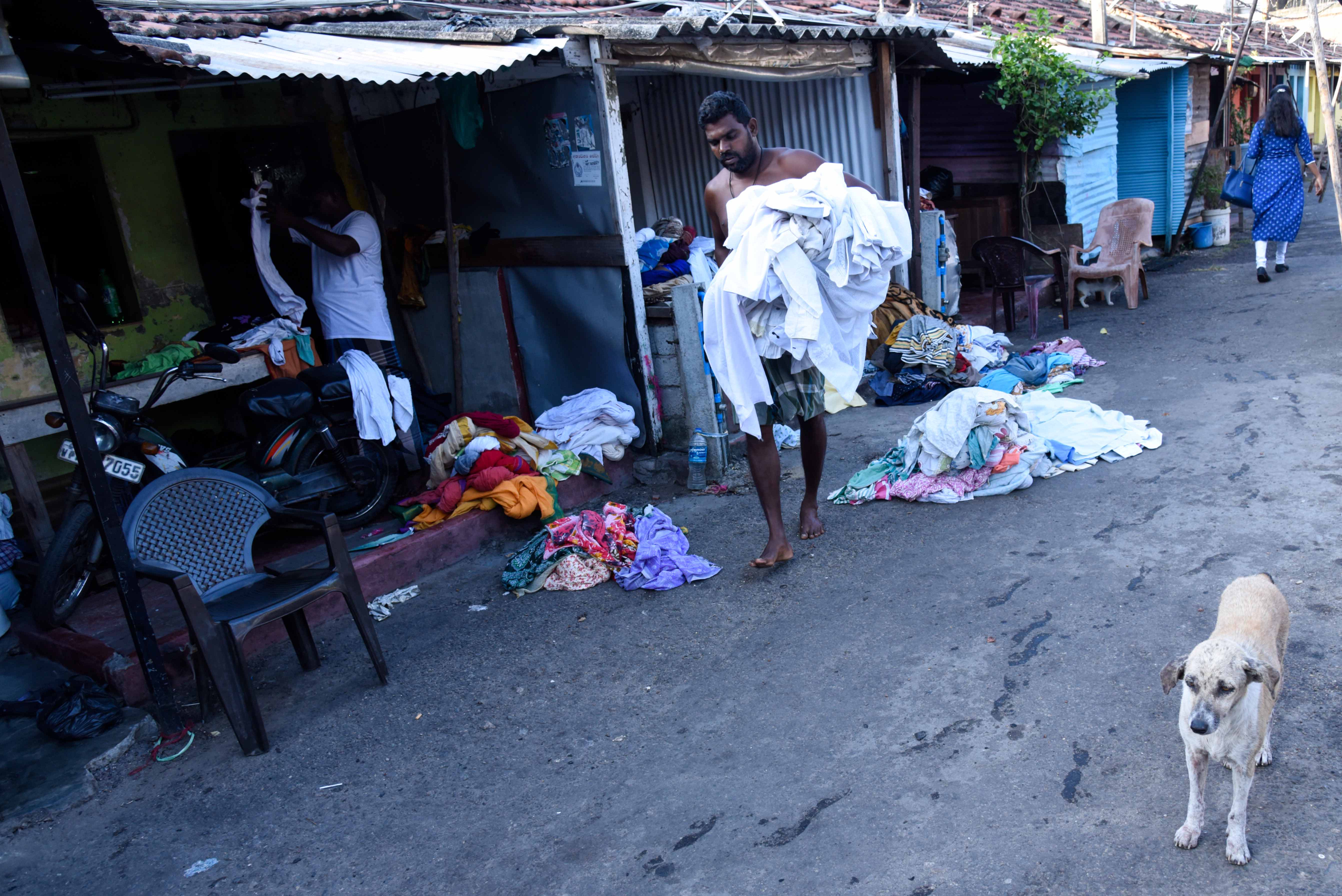
Upali’s (59) real name is L. L. Sunil. “Everyone calls me ‘Upali’ or ‘Upa’. We’ve all known each other from childhood. We all grew up together. And now we are all working the same job,” he said.
Upali’s family is not originally from Paradise Place, although he grew up there. Others who have known Upali from childhood jest about that, “he came here and fell in love with the work.” Upali laughs and shrugs it off. “My mother is from Galle. She married and came here to live. I’ve been doing this since I can remember.” Upali, however, chose not to marry. And so he has no offspring, who would continue his trade.
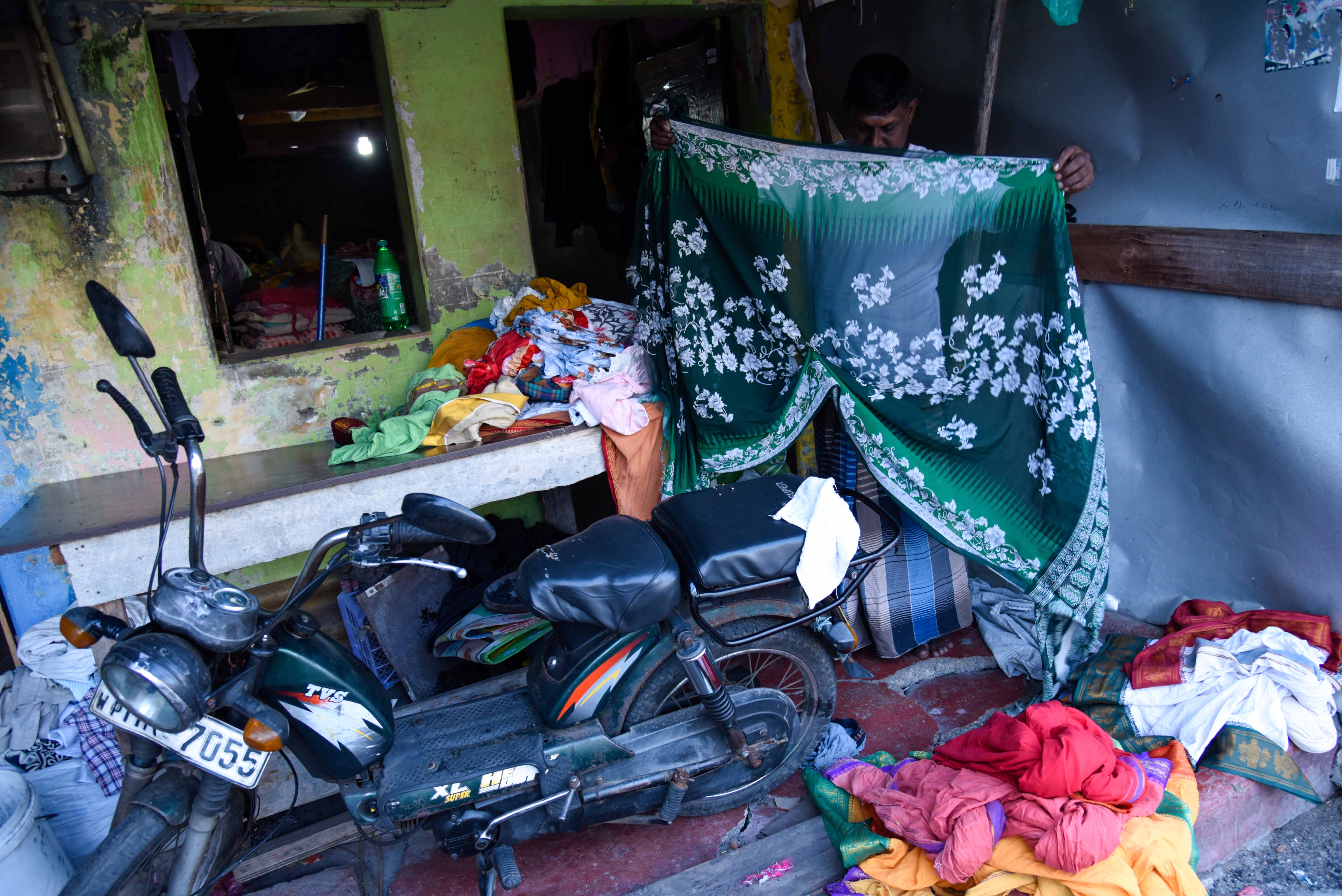
Rajesh (49) was introduced to the business when he was 13, by his father. He too is a third-generation launderer. His family lives in Mattakkuliya, where his three children attend school. “I have two girls and a boy. The boy is the middle child, he’s smart beyond his age!” he said.
Rajesh is a talker; able to chat his way into anyone’s good books, and says his clients love him. “This job is good. It’s a service to the people, isn’t it? It’s easy. We meet all kinds of people, the rich, the poor, and everyone in between. The rich only seek our help, when they want something. Others, those who have tasted our circumstances, are the ones who are there through thick and thin,” he told us.
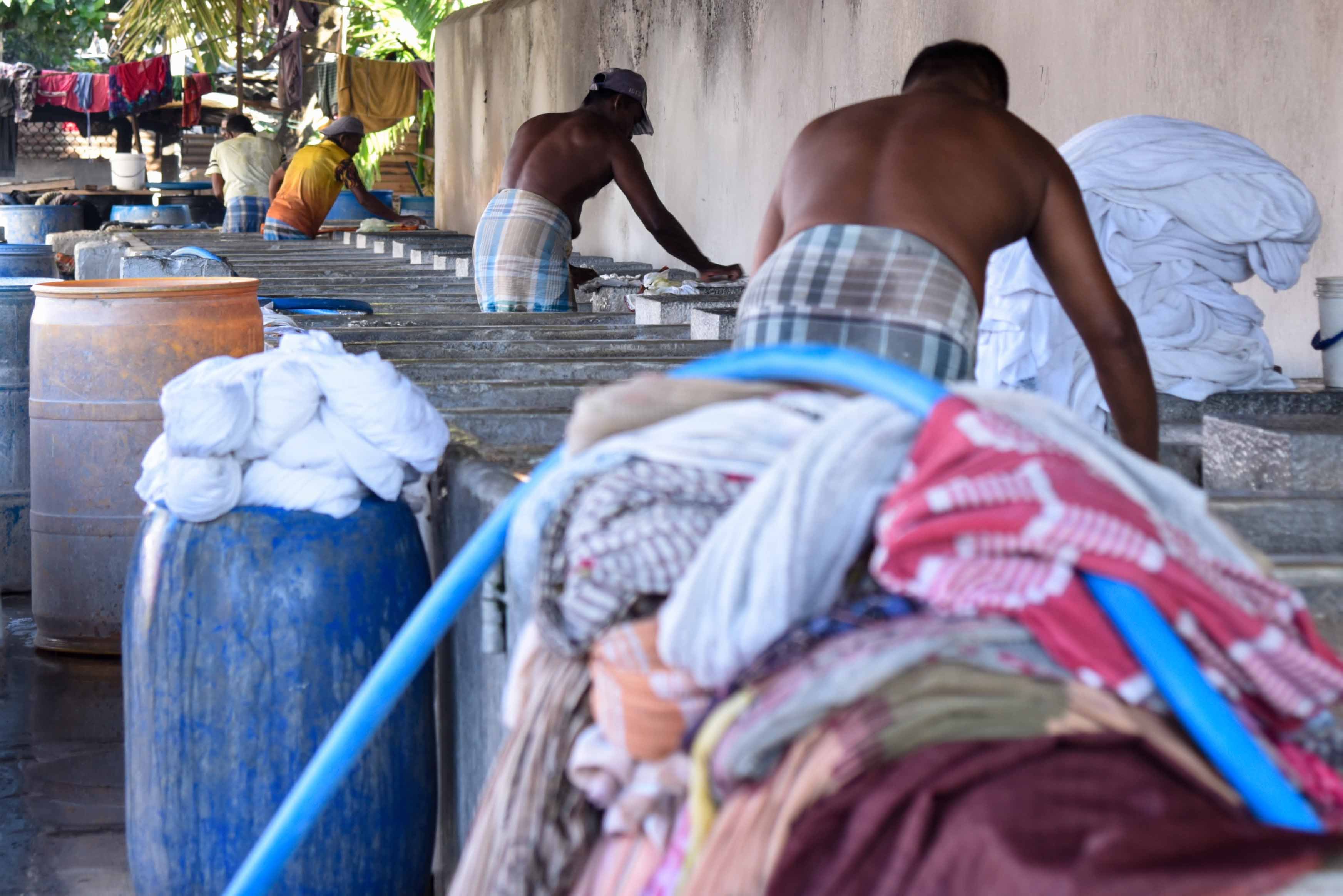
According to the residents who spoke to us, in 2015, the then-government decided that the dhobis of Paradise Place be relocated to a highrise building designated specifically for low-income families. Rajesh pointed out to us the apartment building on the border of Paradise Place, standing gaunt, white, and empty.
“The Municipal Council told us that we will be relocated seven years ago. They built that apartment after they demolished some of our houses and cleaning rooms. But since then, nothing has happened,” he said.
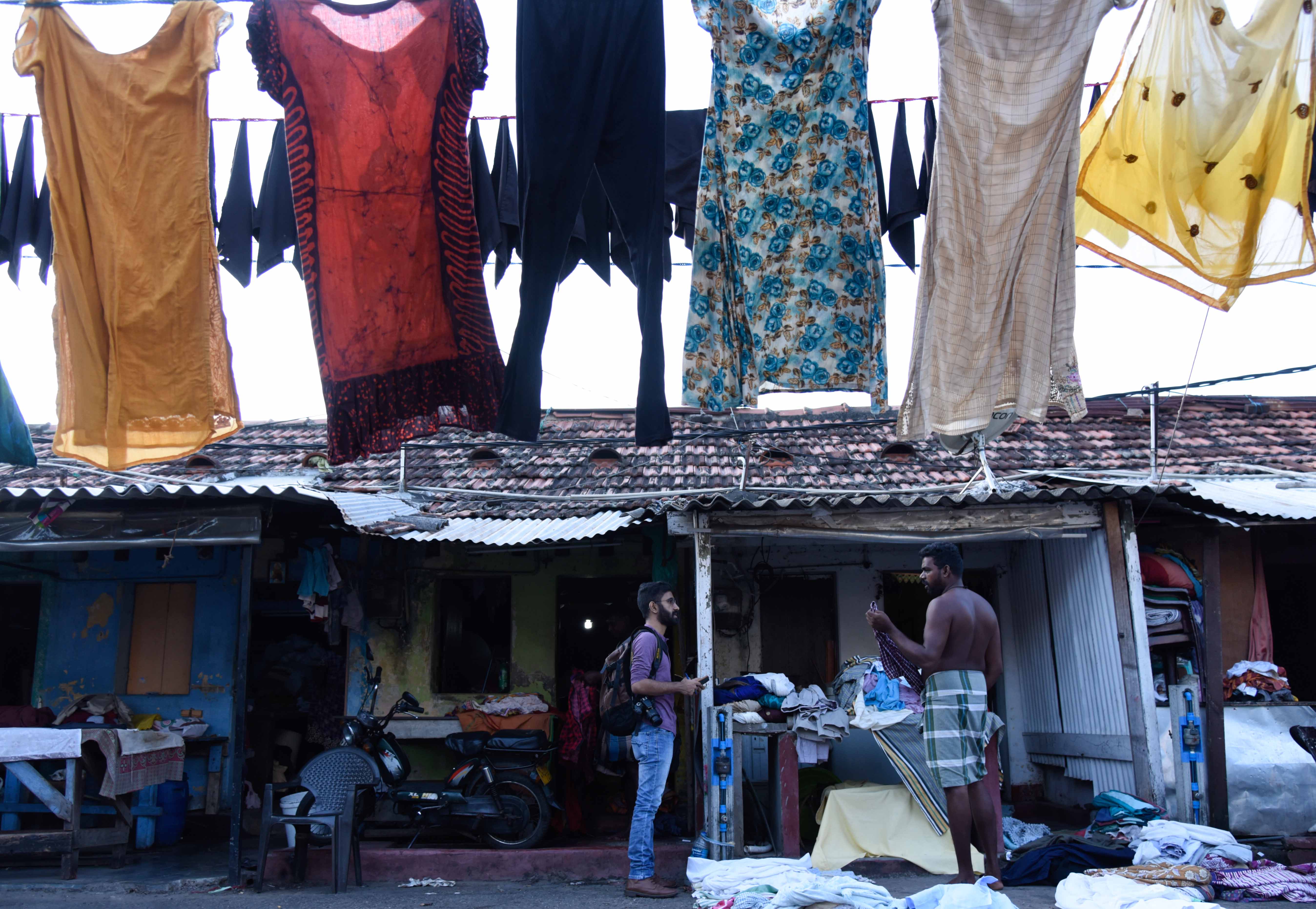
The people of Paradise Place live anachronistically. They are a community that seem, at first glance, unaffected by the passage of time — until you take a closer look, or strike up a conversation with one of the residents. The reason they have survived in this trade for so long, through three generations of dhobis, has less to do with luck and more to do with a penchant to keep ongoing.
Rajesh put these sentiments to words: “We are living hand to mouth. But none of us are complaining. The war came and went. We thought it would make things better for us but it didn’t. Now the war is over but we are still at the same level as we used to be.”
Photo credits: Roar Media/ Akila Jayawardana

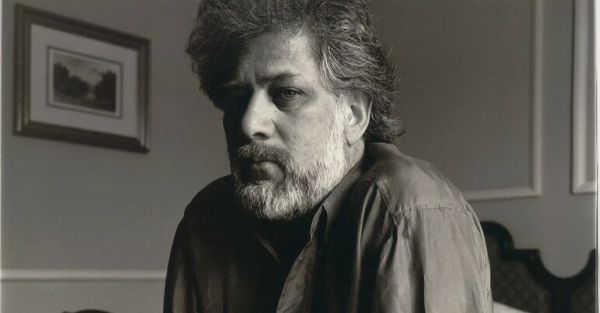
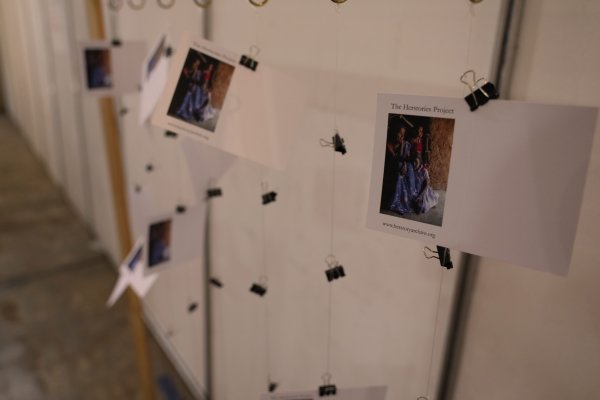
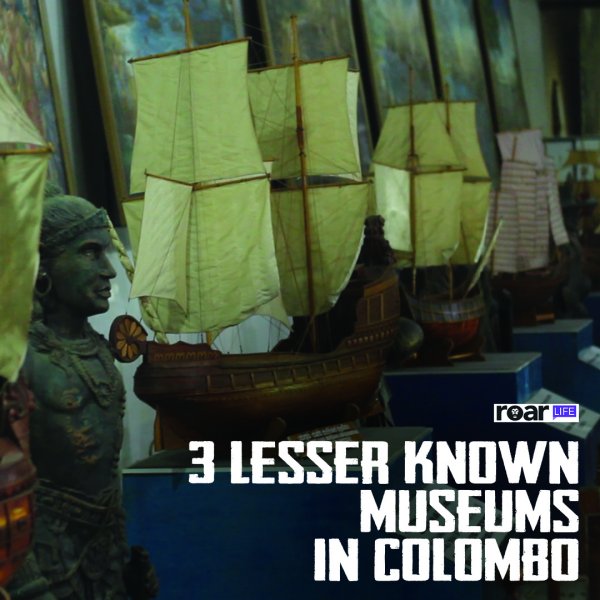
.jpg?w=600)
